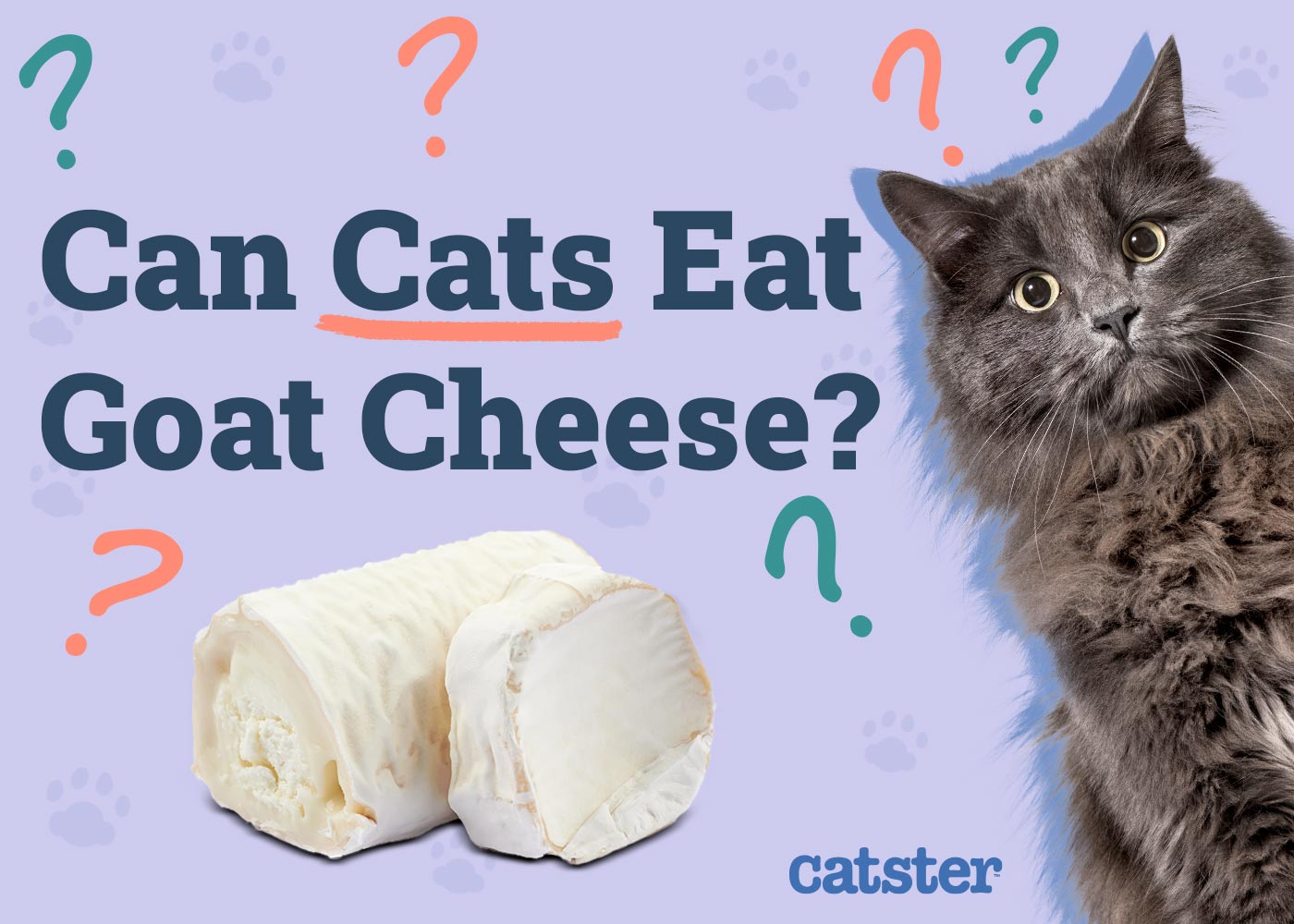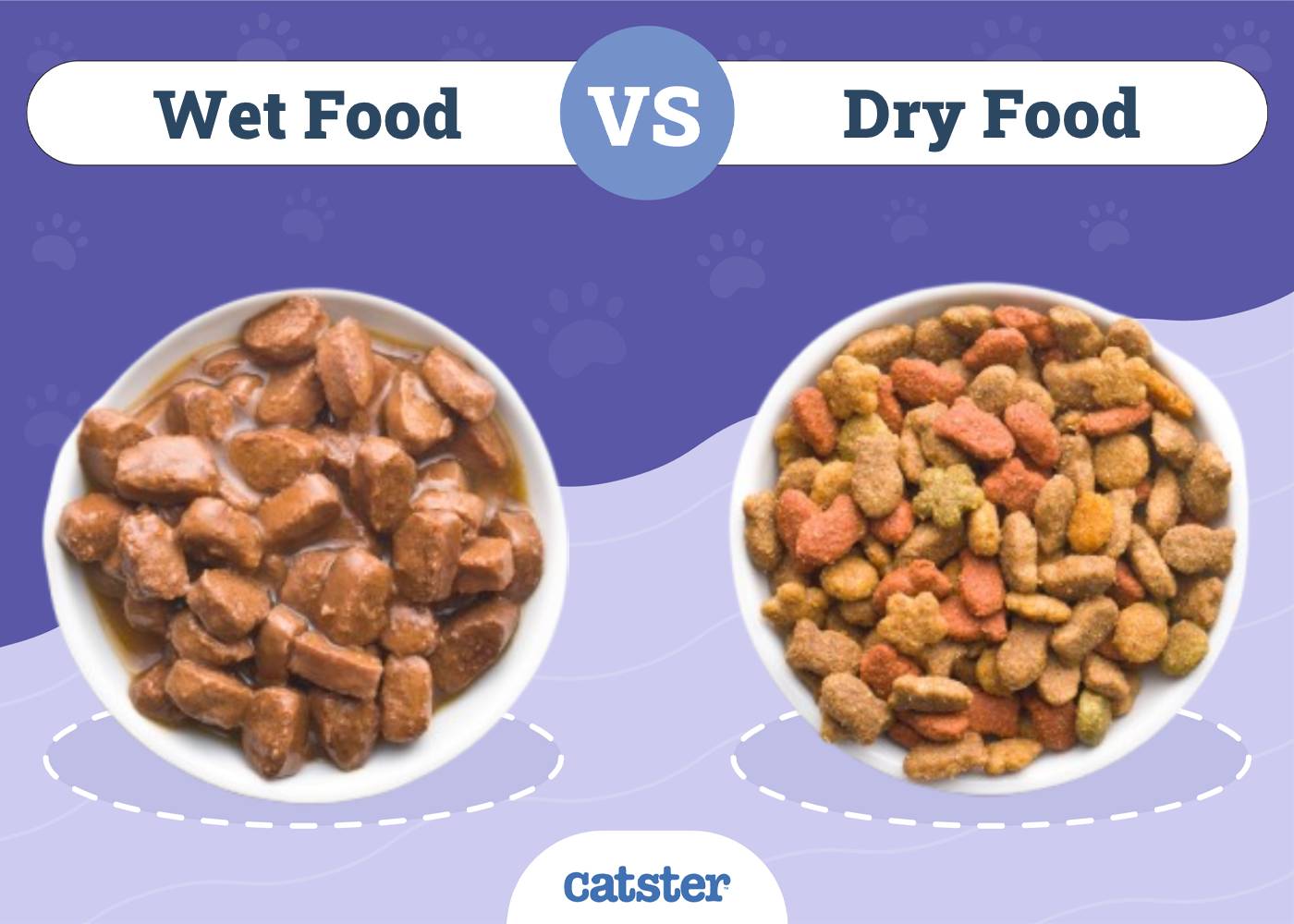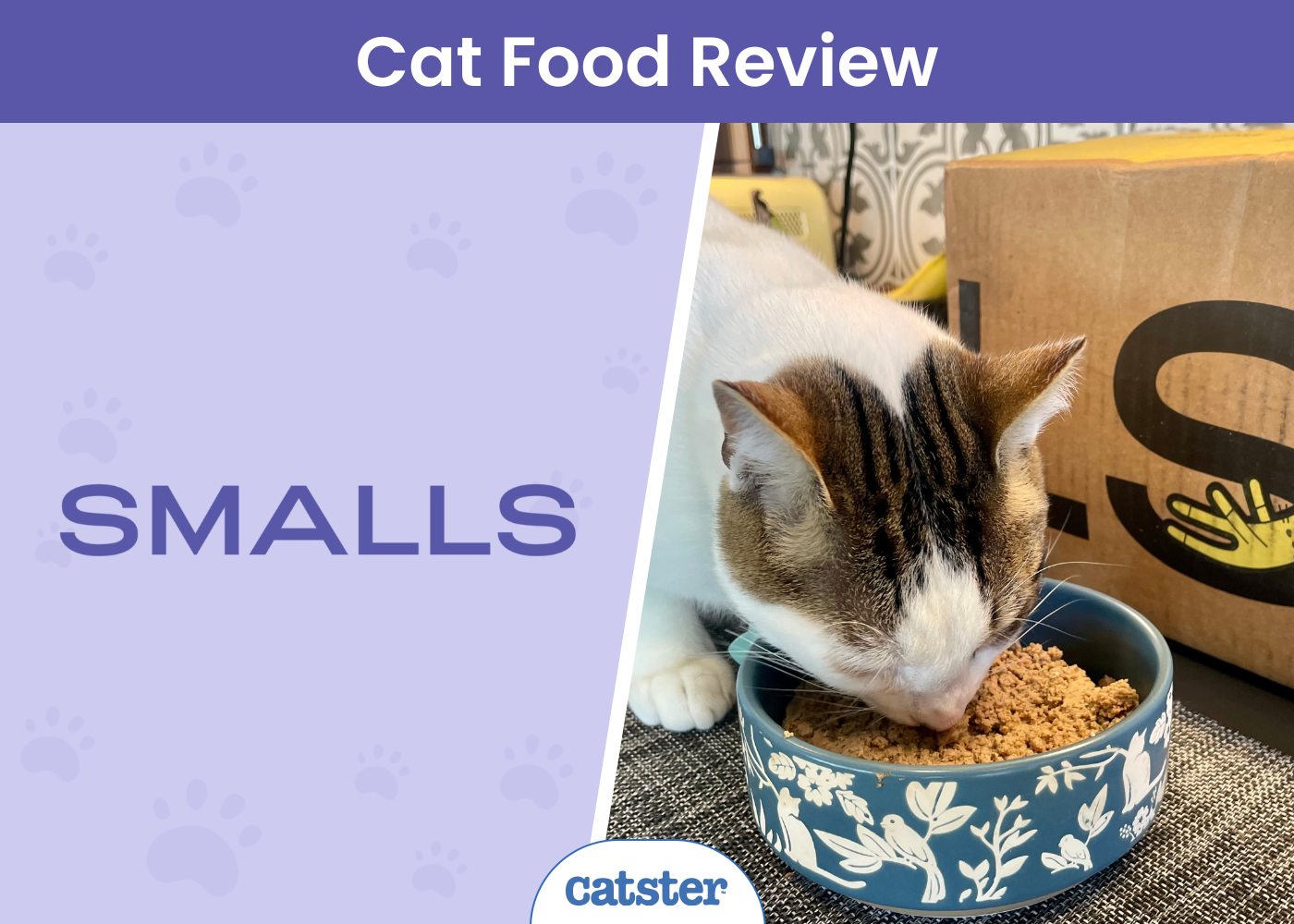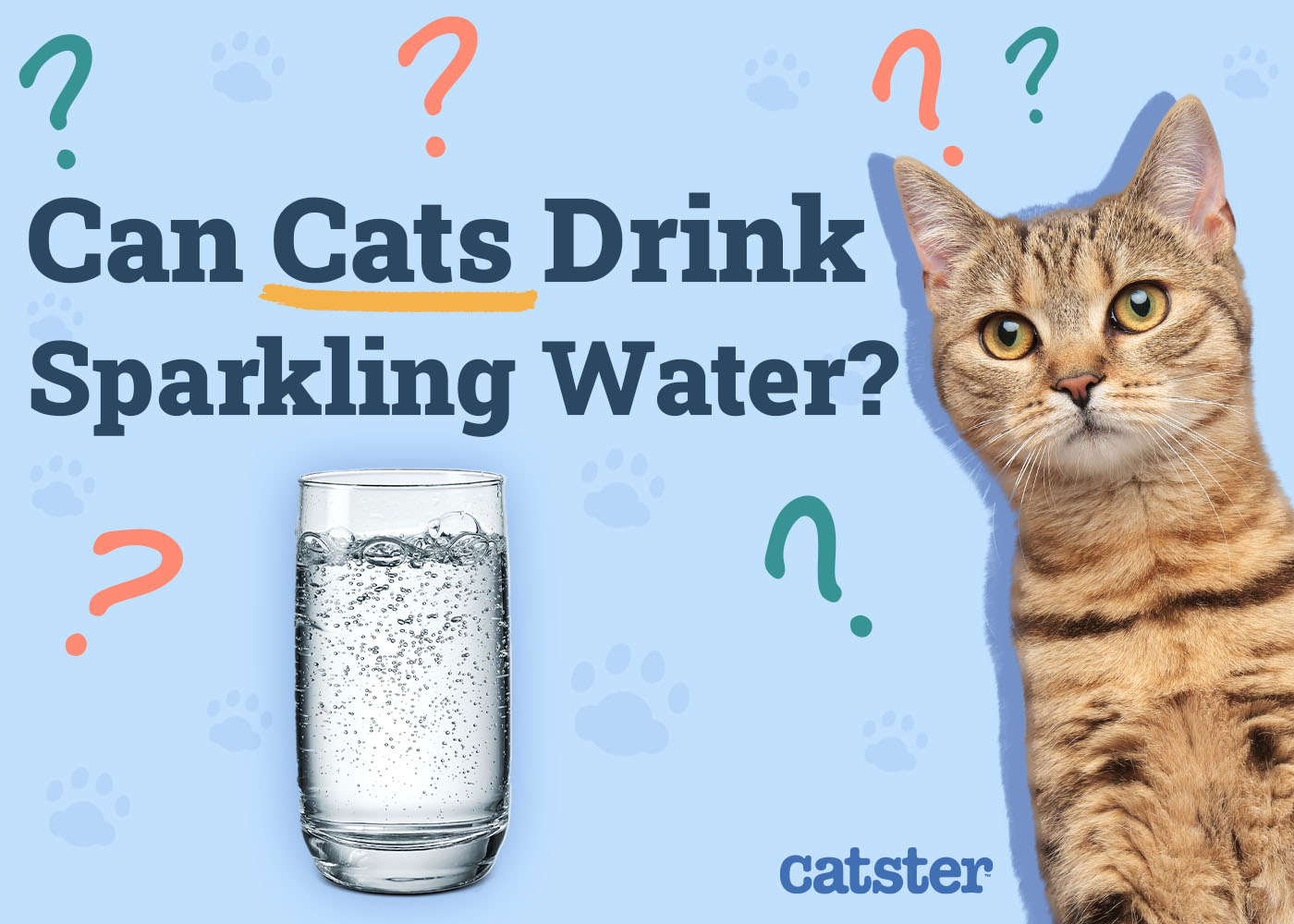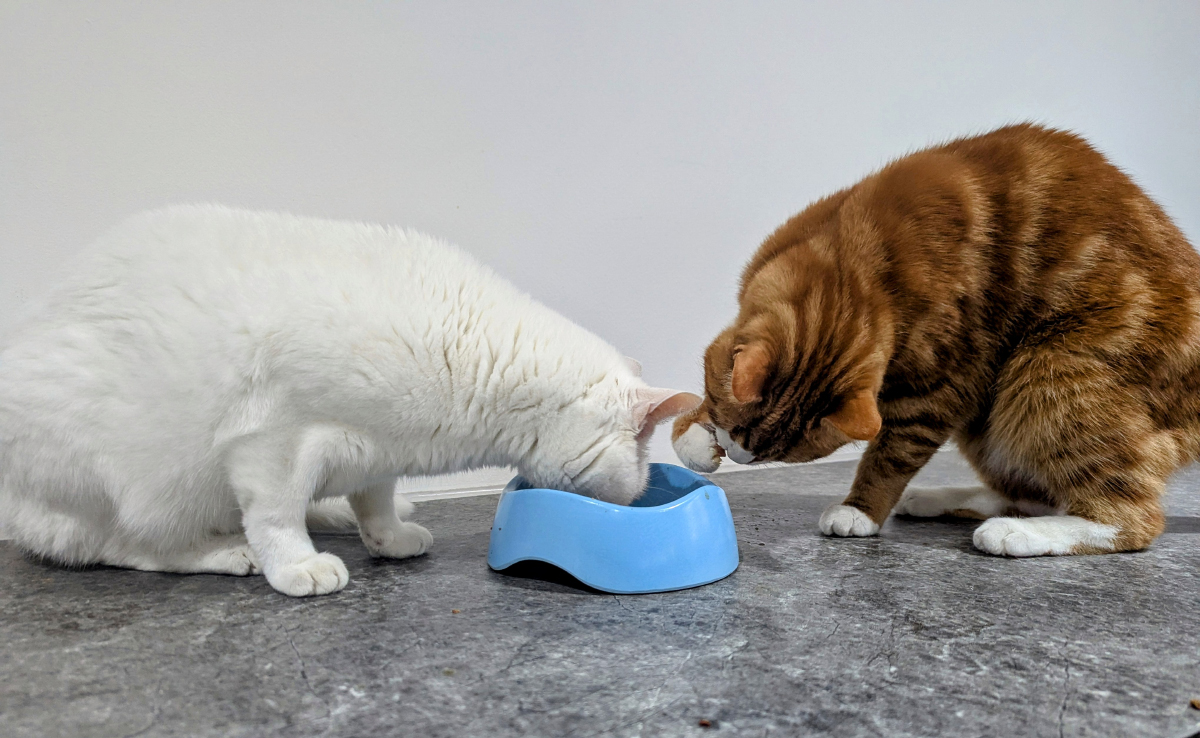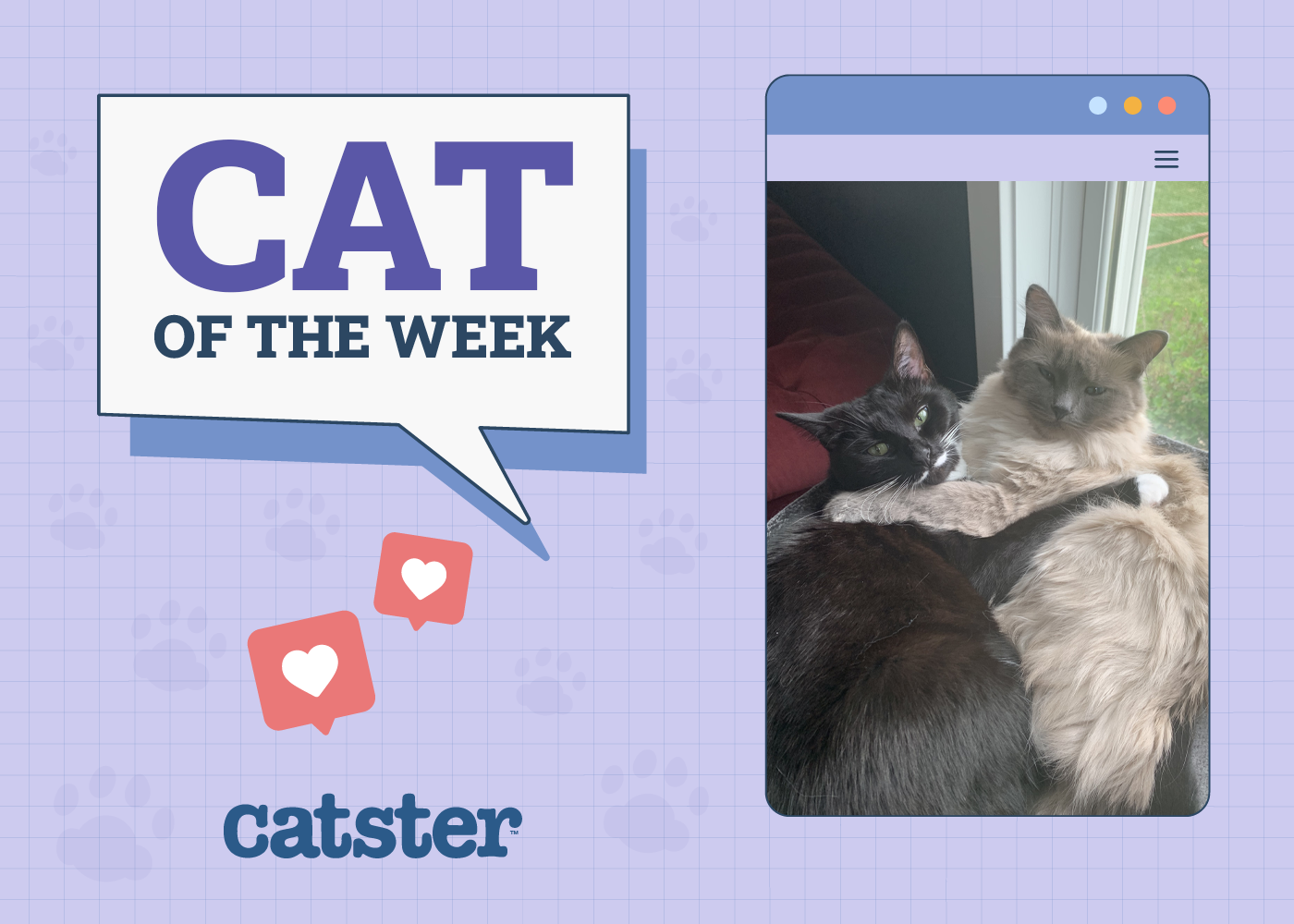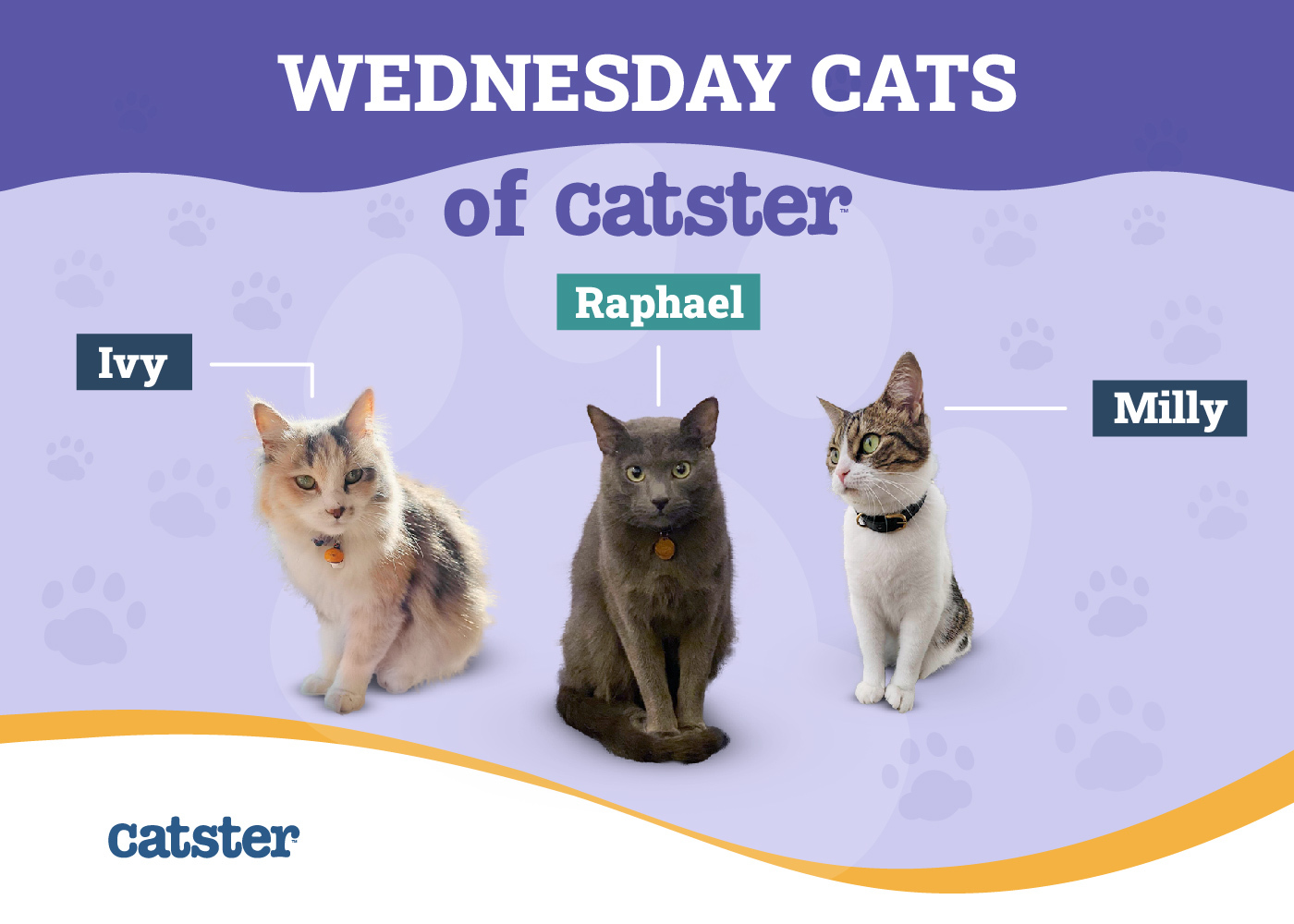As responsible cat parents, many people often wonder which treats are both safe and nutritious for their feline friends. While there’s an array of human foods that cats can eat without problems, some could cause issues with their health. Due to the possible risks, you need to know that a certain food is safe for feline consumption before offering it to your pet.
There’s one question in the cat community that many people would like the answer to: Can cats eat goat cheese?
The simple answer to this question is yes, cats can eat goat cheese. However, there are several things that you should know before offering it to your feline.

Nutritional Benefits of Goat Cheese
Goat cheese is a type of cheese made of goat milk. As a popular human delicacy, it’s used in all kinds of dishes to boost their flavor. Goat cheese is nutritious for humans, but does it have any nutritional benefits for cats?
An ounce of goat cheese on average contains the following nutrients:
- Calories: 103 kcal
- Protein: 6 grams
- Fat: 8 grams
- Carbohydrates: 0 grams
- Vitamin A: 8% of RDI
- Vitamin B2: 11% of RDI
- Calcium: 6% of RDI
Here is a list of all the nutritional benefits that cats can experience from eating goat cheese:
- Low in calories
- Low in fat
- Good source of protein
- No carbohydrates
- Contains plenty of vitamin B2
- High in calcium and vitamin A
Another great thing about this cheese is that it’s low in lactose, which makes it easier for cats to digest.
Is Goat Cheese Healthy for Cats?
Cats are obligate carnivores, meaning they need to consume meat-based foods to properly develop and survive. Felines don’t need goat cheese or any other human foods in their diet.
However, when consumed occasionally and in moderation, goat cheese is healthy and shouldn’t harm your cat; it may even give your feline a health boost due to all the vitamins and minerals that it contains. Still, it’s important to know that consuming large amounts of goat cheese could negatively impact your cat.
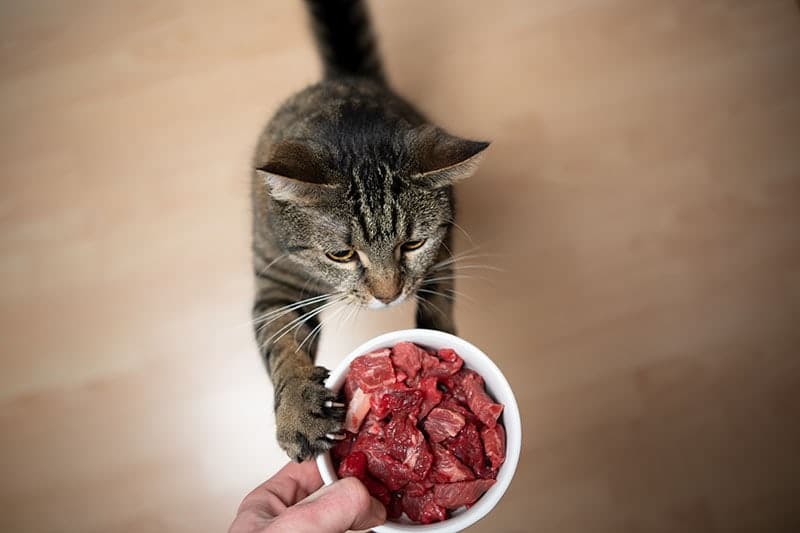
The Possible Problems With Cats Eating Goat Cheese
Our feline friends can experience gastrointestinal issues due to the lactose inside goat cheese. Young kittens are born with the enzyme lactase that enables their bodies to dissolve lactose, but as they grow older, their bodies stop producing lactase to pave the way for a diet that primarily contains meat. It’s why most adult cats are lactose intolerant.
Although goat cheese doesn’t contain much lactose, this compound is still present and could potentially cause health issues in your feline. Common problems that cats can experience due to eating goat cheese are:
- Stomach upset
- Abdominal pain
- Excessive gas
- Bloat
- Vomiting
- Diarrhea
- Constipation
- Increased thirst
- Dehydration
So, if you want to give goat cheese to your cat, it’s best to introduce this treat slowly and monitor your cat for any reactions.
How Much Goat Cheese Can Cats Eat?
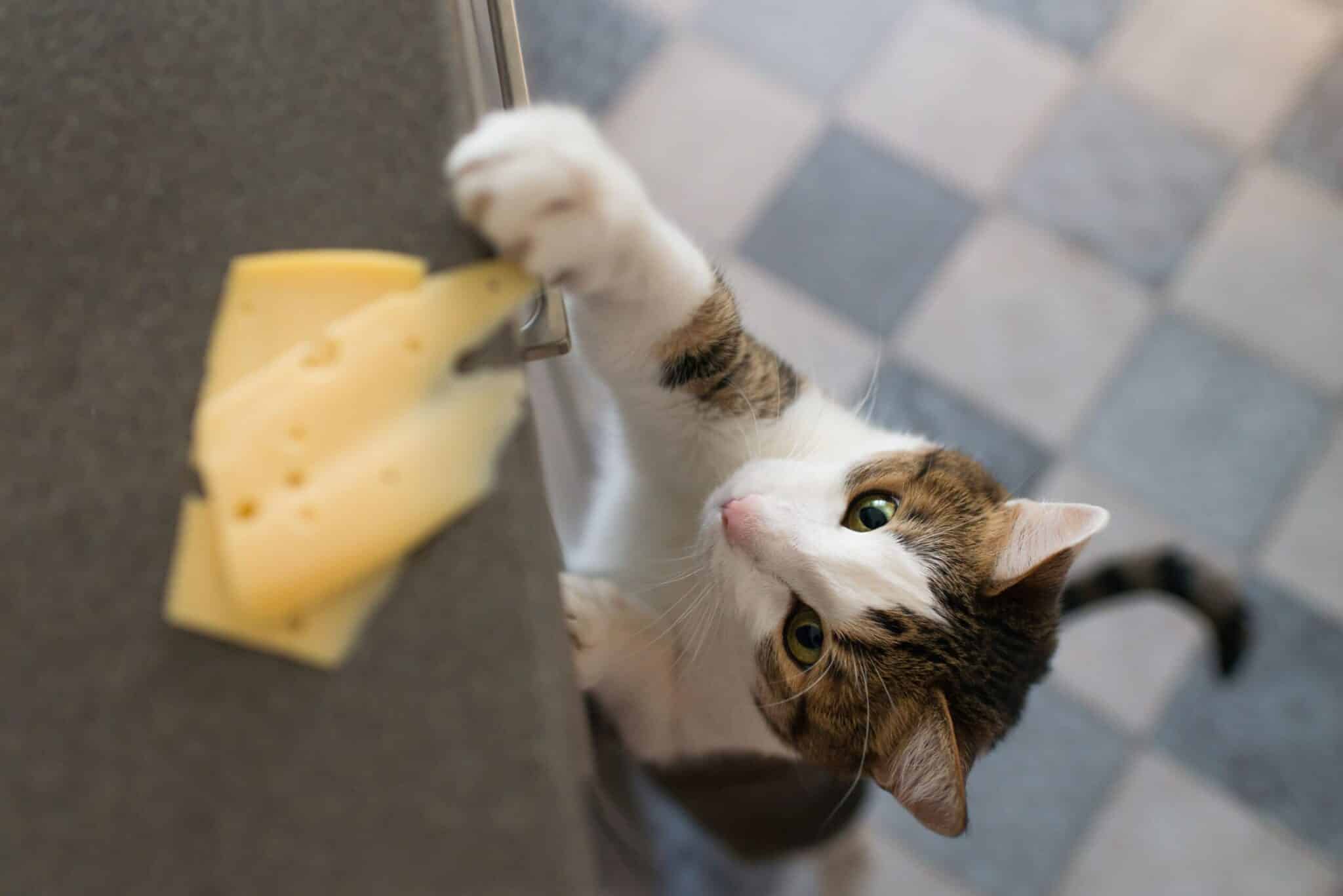
Although not your typical cat food, goat cheese can positively impact felines when consumed in moderation.
Here is the suggested amount of goat cheese that a cat should be able to safely eat:
- Kittens — You can offer 1–2 tablespoons of goat cheese every week, as kittens are better at breaking down lactose than adult cats, which is why this amount shouldn’t do them any harm and can even improve their health. Still, keep in mind that kittens grow and develop best when they drink their mother’s milk, so it’s unnecessary to offer them treats.
- Adult cats — Offering 2–4 tablespoons of goat cheese to an adult cat every other day or so should be enough to boost your cat’s health without causing gastrointestinal problems. That said, many adult cats are lactose intolerant, so monitor your cat for any possible side effects.
You shouldn’t offer goat cheese to your cat if they have any health problems. Always consult your veterinarian before including a new food in your cat’s diet.
How Can I Feed Goat Cheese to My Cat?
If you want to feed goat cheese to your cat, there are several things that you can do to make the process go smoothly, especially if this is the first time that your cat will be eating it.
- Speak with your vet — It’s always a good idea to speak with your veterinarian before including a new food, such as goat cheese, in your cat’s diet. Your vet knows your cat’s health condition, and they will be able to confirm if this human treat is safe for them.
- Prepare the goat cheese — Goat cheese is soft, so there’s no need for different preparations to get it ready for your cat. Simply crumble the goat cheese into small edible pieces that your cat can easily digest.
- Start slowly — When introducing any new food, including goat cheese, to your cat, you need to start slowly. This way, you can see how your cat reacts. If your cat likes the taste and has no negative reactions, you can increase the amount of goat cheese that you offer the next time.
- Mix it with other foods — If you’re unsure that your feline will like the taste of goat cheese, you can mix it with other foods that your cat already approves of. This will enable your cat to get used to its taste and texture.
- Store it properly — You should store goat cheese inside the refrigerator to keep it fresh. Otherwise, it’s best not to offer it to your cat.
We recommend seeking veterinarian advice before updating any of your cat’s diet.

If you need to speak with a vet but can’t get to one, head over to PangoVet. It’s an online service where you can talk to a vet online and get the personalized advice you need for your pet — all at an affordable price!

Frequently Asked Questions
Are Other Cheeses Besides Goat Cheese Safe for Cat Consumption?
While you now know that goat cheese can be beneficial for your feline when consumed in moderation, you might be wondering if any other cheeses are safe for cat consumption.
- Cheddar — This type of cheese is suitable for cats because it contains low levels of lactose.
- Swiss — This cheese is usually low in sodium and lactose but contains plenty of protein.
- Mozzarella — This type of cheese is unsuitable for cats because it’s extremely high in lactose.
- Blue cheese — This type of cheese is a popular delicacy and is also known as moldy cheese. The mold on this cheese contains penicillin, which could harm your cat’s health.

Final Thoughts
Goat cheese is not toxic to cats, and it can make an excellent treat for felines that can tolerate milk and dairy products. When eaten in moderation, goat cheese may positively affect your cat’s health. That said, you should only offer this treat in small amounts to prevent gastrointestinal problems.
Featured Image Credit: JumpStory

